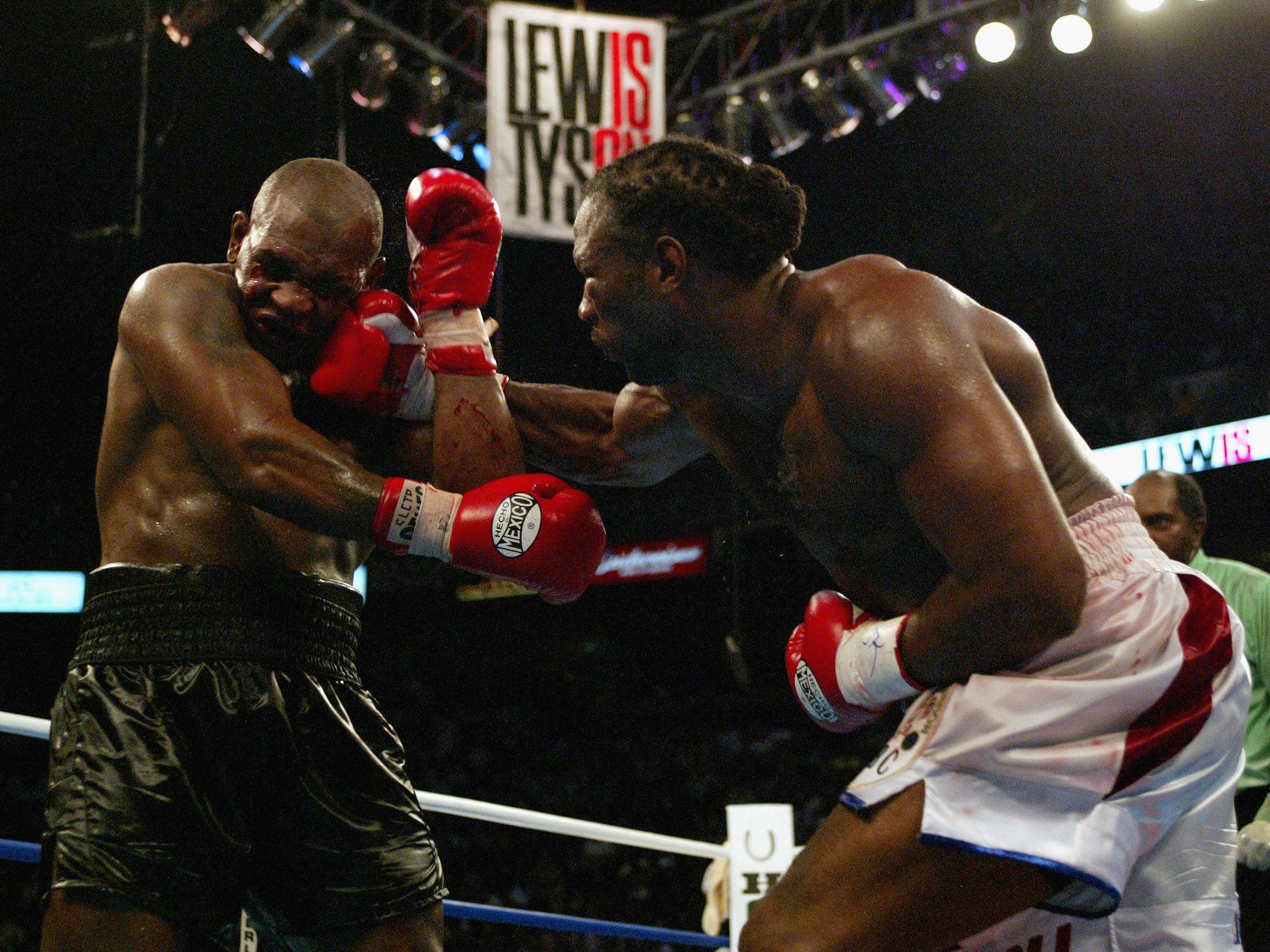Kevin Garside: Iron Mike Tyson may seem an unlikely fighter for civil rights, but he understands only too well what it still means to be black in America
We liberal whites recognise racism’s vile properties, but we don’t feel it

Mike Tyson and Rosa Parks are not an obvious tag team on the front line of American civil rights. Consideration of Tyson as a symbol of resistance and struggle is hard to reconcile with the depraved, dissolute sociopath with whom we are all too familiar. But for many a disenfranchised black youth cut adrift in the projects and ghettos of America, Tyson remains a towering figure, despite the complication of the rape conviction that barred his entry to this country last December.
What emerges via the churn of commentaries and interviews spawned by the publication of his autobiography The Undisputed Truth is a damaged man hanging on by his fingertips to what normality is afforded him in the post-Iron Mike years. I always felt that Tyson, because of the particular direction his life had taken from the Brooklyn badlands to the limo ride through the American dream, had developed a unique and sophisticated understanding of what it is to be black in modern America.
This was not the experience of Barack Obama, who plotted a route that would penetrate the bourgeois elite, but that of the impoverished millions who believe the same opportunities do not exist for them. When Parks, born 101 years ago tomorrow, was refusing to surrender her seat for a white passenger on that bus in Montgomery, Alabama in 1955, the African American lot was one of bitter exclusion and segregation.
Tyson would tell you from his upbringing in Brownsville, in a house with no father and a mother trading sex and drugs, that not much had changed when his view of the world was being shaped. Not every child of the ghetto seeks Tyson’s solutions but it seems to me a tad rum to condemn a man for poor manners when the conditions that allow them to flourish are the dirty offshoot of the society in which we all live.
The world has moved on since Parks was waging the civil rights war, but Tyson is entitled to ask how far America had come when he was sprung on the neighbourhood a decade after Rosa’s colossal dissent.
For us white folk in the liberal West, racism is essentially an abstraction. We don’t experience its negative, draining consequences. We recognise its vile properties, we oppose it in argument, but we don’t feel it.
Indeed, only once have I been conscious of my own ethnicity, and that was on the day Tyson and Rosa came together for me, indelibly paired in my imagination on the June weekend in 2002 that Iron Mike met a terrible end at the hands of Lennox Lewis in Memphis. This was a match that the sporting world had craved for a decade and brought to Tennessee a who’s who of boxing greats and sundry hangers-on.
Before Tyson was beaten to a bloody pulp I undertook a tour of the American Civil Rights Museum, housed in what was the Lorraine Motel, a former hotel for the black community and the deathbed of Martin Luther King. The curator does not hold back. For two powerful hours the apartheid regime imposed by the grey policy-makers in the United States is held to account for the evils perpetrated on African Americans. I was one of two ethnic whites in an audience of 50 or so. The other was the boxing correspondent of this paper, Steve Bunce. It was a relief to get back to the boxing.
This would be the last fight in which Tyson might be considered a credible contender. There were many among the experts gathered who believed Tyson retained enough of his youthful fury to do a number on Lewis. He was in the fight for a couple of rounds but by the third it was clear how this would end. He could easily have sought a quicker exit but took his lumps until the eighth round, by which time, cut and bloodied, Tyson could tolerate no more.
The tyranny was over. The book recounts every detail of a life governed by violence of one sort or another. You can hear him retell his story in most major cities in America. Next up for his one-man tour is Chicago, where he is also promoting his own fight bill.
For me, the most powerful elements of the book relate not to the parts of his story that we already know, but his political insight into what it is like to be black in 21st century America. He refers to a position he classifies as “Uncle Tom”, a passive, conformist attitude he feels he must strike, conditioned by the way white America sees him, in order to defuse a threat seen as inherent.
In that Tyson makes the same point as Rosa, if not with her purity or nobility. Racism will be with us as long as a man’s colour or ethnicity and not his nature is the first thing we see.
Subscribe to Independent Premium to bookmark this article
Want to bookmark your favourite articles and stories to read or reference later? Start your Independent Premium subscription today.

Join our commenting forum
Join thought-provoking conversations, follow other Independent readers and see their replies